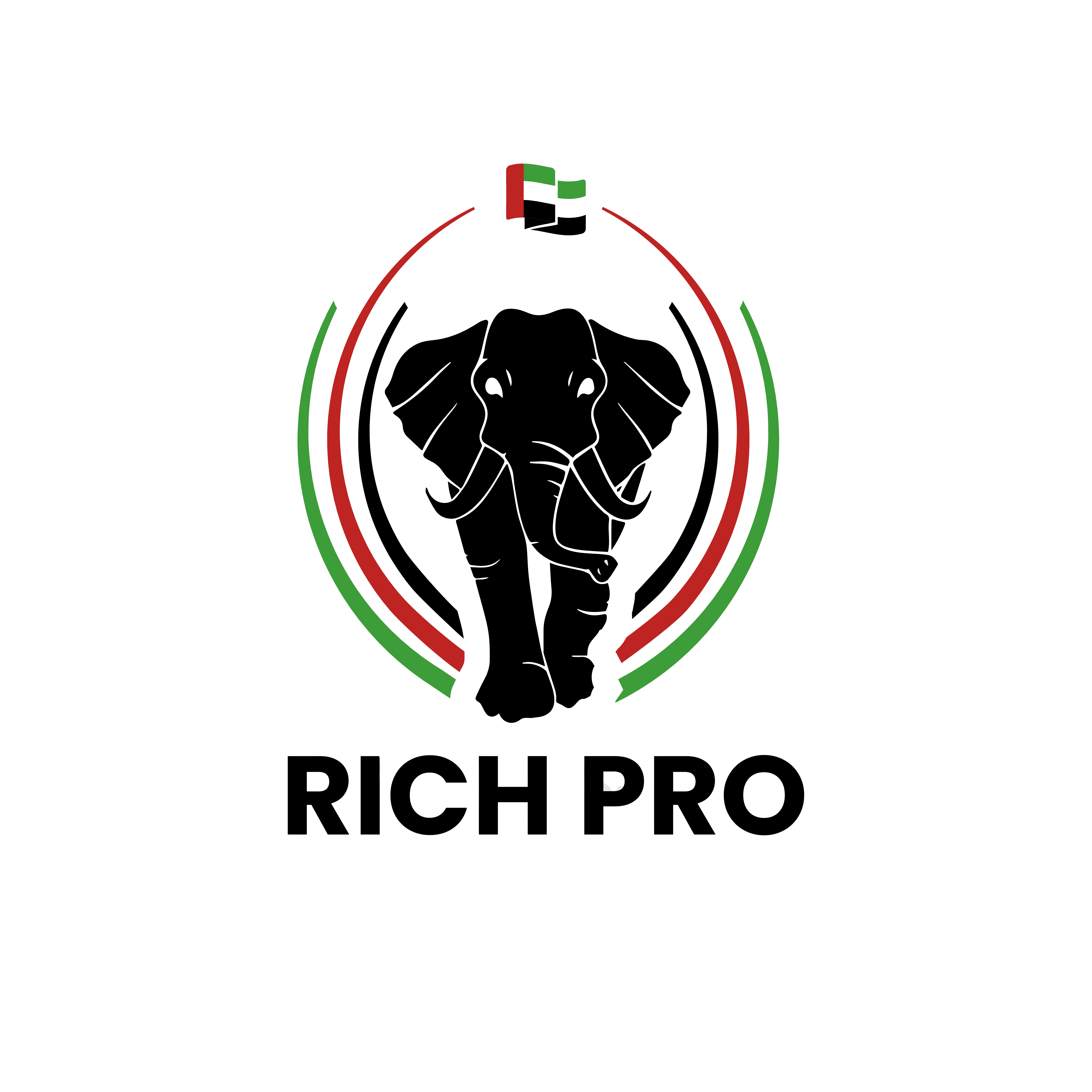This article will provide a comprehensive guide to the 51-49 rule in Dubai, exploring its history, implications, and recent reforms. Whether you’re a seasoned investor or a first-time entrepreneur, understanding the 51-49 rule in Dubai is crucial to navigating the complexities of setting up and running a business in this dynamic city
Dubai has long been a global hub for business and investment, attracting entrepreneurs and investors from around the world. However, for many years, foreign investors faced a significant barrier to full ownership of businesses in Dubai due to the 51-49 rule in Dubai. This rule, which required foreign investors to partner with a local Emirati sponsor who held at least 51% of the shares in a mainland company, was a defining feature of the UAE’s business landscape. While the 51-49 rule in Dubai has been relaxed in recent years, it remains an important concept for anyone looking to understand the legal and regulatory framework of doing business in Dubai
1. What is the 51-49 Rule in Dubai?
The 51-49 rule in Dubai refers to a regulation that required foreign investors to partner with a local Emirati sponsor or partner who held at least 51% of the shares in a mainland company. Under this rule, the foreign investor could own a maximum of 49% of the shares, while the local sponsor retained the majority stake. This rule applied to businesses operating in the UAE mainland and was designed to ensure that Emirati nationals maintained control over the country’s economy.
The 51-49 rule in Dubai was a key feature of the UAE’s Commercial Companies Law, which governed the establishment and operation of businesses in the country. While the rule was intended to protect the interests of local Emiratis, it also posed challenges for foreign investors who wanted to retain full control over their businesses.
2. History of the 51%-49% Rule in Dubai
The 51-49 rule in Dubai has its roots in the UAE’s economic and legal framework, which was established following the country’s formation in 1971. At the time, the UAE government sought to balance the need for foreign investment with the desire to protect the interests of local Emiratis. The 51-49 rule in Dubai was introduced as part of this strategy, ensuring that Emirati nationals retained a majority stake in businesses operating in the UAE mainland.
For decades, the 51-49 rule in Dubai was a defining feature of the UAE’s business landscape. Foreign investors who wanted to set up a mainland company had no choice but to partner with a local sponsor, who would hold at least 51% of the shares. While this arrangement allowed foreign investors to access the UAE market, it also meant that they had to share control and profits with their local partner.
3. Implications of the 51-49 Rule in Dubai
The 51-49 rule in Dubai had several implications for foreign investors, both positive and negative. Here are some of the key implications:
3.1 Limited Control for Foreign Investors
One of the most significant implications of the 51-49 rule in Dubai was that foreign investors had limited control over their businesses. Since the local sponsor held a majority stake, they had the final say in key business decisions, including financial matters, contracts, and operations. This lack of control was a major concern for many foreign investors, particularly those who wanted to retain full ownership of their businesses.
3.2 Profit Sharing
Under the 51-49 rule in Dubai, foreign investors were required to share profits with their local sponsor. Since the sponsor held a majority stake, they were entitled to a larger share of the profits, which could impact the financial viability of the business for the foreign investor.
3.3 Dependence on Local Sponsors
Foreign investors who operated under the 51%-49% rule in Dubai were often dependent on their local sponsors for various aspects of their business, including licensing, permits, and government relations. While some sponsors played an active role in supporting their partners, others were more passive, leaving the foreign investor to manage the business on their own.
3.4 Legal and Financial Risks
The 51-49 rule in Dubai also posed legal and financial risks for foreign investors. In some cases, disputes arose between foreign investors and their local sponsors, leading to legal battles and financial losses. Additionally, foreign investors had limited recourse in the event of a dispute, as the local sponsor held the majority stake and had greater influence over the business.
4. Recent Reforms to the 51-49 Rule in Dubai
In recent years, the UAE government has introduced significant reforms to the 51-49 rule in Dubai, as part of its efforts to attract foreign investment and boost economic growth. These reforms have relaxed the requirement for local sponsorship in certain sectors, allowing foreign investors to own 100% of their businesses in the UAE mainland.
4.1 The 2021 Foreign Ownership Reforms
In 2021, the UAE government announced a landmark reform to the 51-49 rule in Dubai, allowing foreign investors to own 100% of their businesses in the UAE mainland. This reform applied to a wide range of sectors, including technology, renewable energy, manufacturing, and more. Under the new regulations, foreign investors no longer need a local sponsor to set up a mainland company in eligible sectors.
4.2 Impact of the Reforms
The reforms to the 51-49 rule in Dubai have had a significant impact on the UAE’s business landscape. By allowing foreign investors to own 100% of their businesses, the reforms have made the UAE more attractive to international investors and entrepreneurs. The reforms have also encouraged innovation and competition, as foreign investors are now able to retain full control over their businesses and profits.
4.3 Exceptions to the Reforms
While the reforms to the 51-49 rule in Dubai have opened up new opportunities for foreign investors, it’s important to note that not all sectors are eligible for 100% foreign ownership. Some sectors, such as oil and gas, banking, and insurance, still require a local sponsor or partner. Additionally, businesses that operate in certain strategic industries may be subject to additional regulations and restrictions.
5. Alternatives to the 51-49 Rule in Dubai
For foreign investors who want to avoid the 51%-49% rule in Dubai, there are several alternatives available, including free zones and offshore companies.
5.1 Free Zones
Free zones are specially designated areas within the UAE that offer 100% foreign ownership, tax exemptions, and full repatriation of profits. There are over 40 free zones in Dubai, each catering to specific industries such as technology, media, finance, and logistics. Free zone companies are ideal for businesses that want to operate within a specific industry and benefit from the incentives offered by the free zone authorities.
5.2 Offshore Companies
Offshore companies are another alternative to the 51-49 rule in Dubai. These companies are registered in Dubai but do not conduct business within the UAE. Instead, they are typically used for holding assets, international trading, and estate planning. Offshore companies offer 100% foreign ownership, tax exemptions, and confidentiality, making them an attractive option for investors looking to protect their assets and minimize their tax liabilities.
6. Navigating the 51-49 Rule in Dubai
For foreign investors who are still subject to the 51-49 rule in Dubai, there are several strategies to navigate the challenges and maximize the benefits of this arrangement.
6.1 Choose the Right Local Sponsor
One of the most important steps in navigating the 51%-49% rule in Dubai is choosing the right local sponsor. A good sponsor should be reliable, trustworthy, and supportive of your business goals. It’s important to conduct thorough due diligence and seek recommendations from other business owners before entering into a partnership.
6.2 Draft a Clear Memorandum of Association (MOA)
A Memorandum of Association (MOA) is a legal document that outlines the terms and conditions of your business partnership. When operating under the 51-49 rule in Dubai, it’s crucial to draft a clear and comprehensive MOA that defines the roles and responsibilities of each partner, the distribution of profits and losses, and the process for resolving disputes.
6.3 Maintain Open Communication
Open communication is key to a successful partnership under the 51-49 rule in Dubai. Regular meetings and updates can help ensure that both partners are aligned on business goals and strategies. It’s also important to address any issues or concerns promptly to avoid misunderstandings and conflicts.
6.4 Seek Professional Advice
Navigating the 51-49 rule in Dubai can be complex, so it’s advisable to seek professional advice from legal and business experts. A qualified consultant can help you understand the legal requirements, draft the necessary documents, and ensure compliance with local regulations.
7. Conclusion
The 51-49 rule in Dubai has been a defining feature of the UAE’s business landscape for decades, requiring foreign investors to partner with a local Emirati sponsor who held a majority stake in their businesses. While this rule posed challenges for foreign investors, recent reforms have relaxed the requirement for local sponsorship in certain sectors, allowing foreign investors to own 100% of their businesses in the UAE mainland.
Despite these reforms, the 51-49 rule in Dubai remains an important concept for anyone looking to understand the legal and regulatory framework of doing business in Dubai. By understanding the history, implications, and alternatives to the 51%-49% rule in Dubai, foreign investors can make informed decisions and navigate the complexities of setting up and running a business in this dynamic city.
Whether you’re an entrepreneur, investor, or professional, Dubai offers a wealth of opportunities for business growth and success. By carefully planning your business strategy and seeking professional advice, you can overcome the challenges of the 51-49 rule in Dubai and unlock the immense potential of this global business hub.





